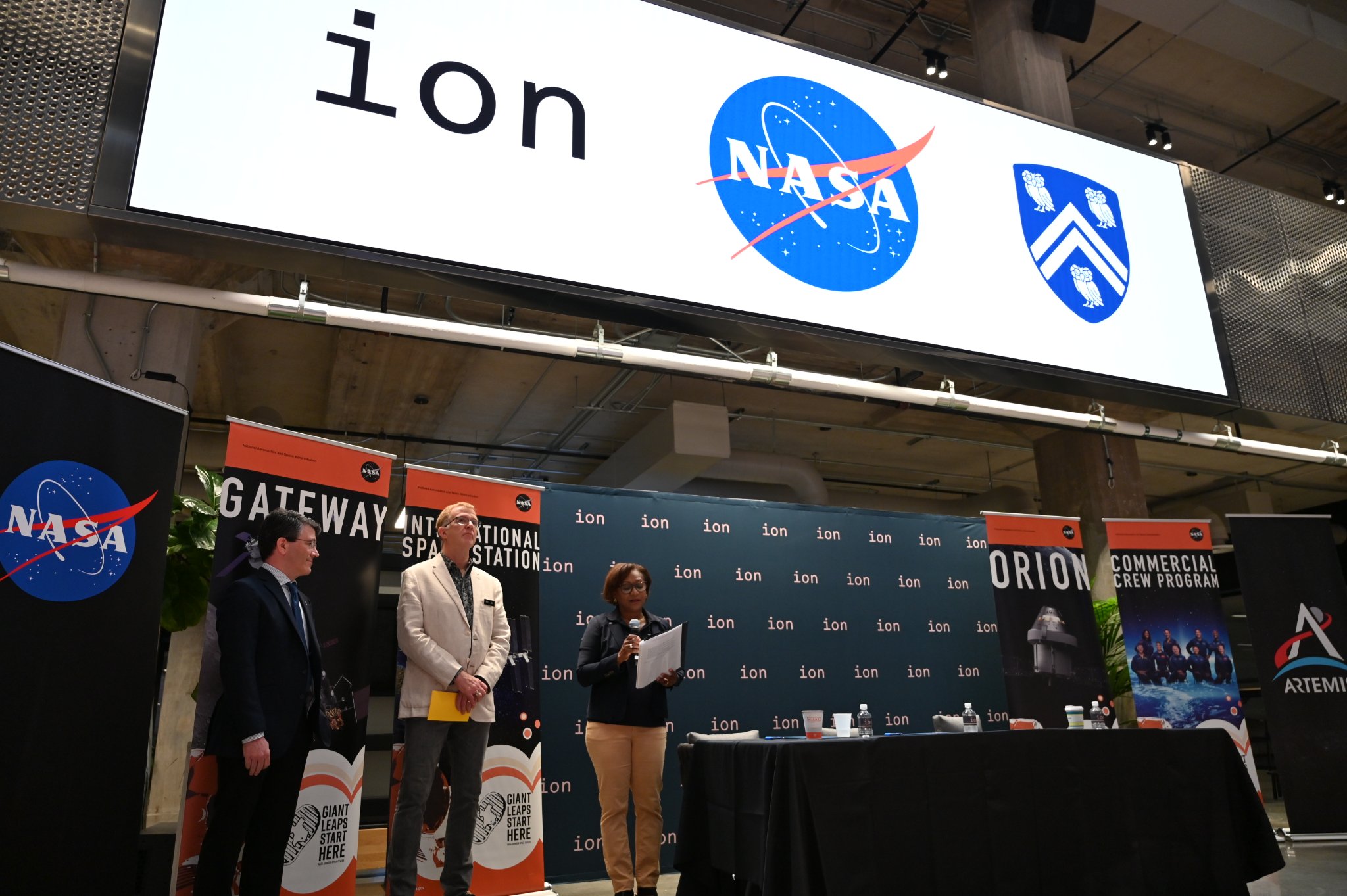New Collaboration Aims to Bolster Region's Aerospace Innovation Ecosystem
Published Jul 14, 2022 by Brina Morales
The Ion is taking a giant leap in innovation by partnering with NASA’s Johnson Space Center to launch a “technology transfer center” at the Ion to bolster the Houston-Galveston region’s aerospace innovation ecosystem.
According to a release, the private-public partnership will include events, programming and initiatives to develop new technologies for the commercial and private space industries and “accelerate tomorrow’s space endeavors” by giving entrepreneurs access to NASA’s IP portfolio.
“This partnership will allow us to increase startups through our aerospace accelerator targeting minority businesses and help achieve NASA’s goals to enhance scientific and technological knowledge to benefit all of humankind, as we propel commercialization of space and work to land the first woman and first person of color on the Moon under Artemis,” said Vanessa Wyche, director of NASA’s Johnson Space Center.
Houston has a large pool of aerospace talent and expertise with more than 23,000 professionals. The Houston Spaceport also positions the region as a leader in the emerging commercial space flight sector.
In 2021, the Ion launched the Aerospace Innovation Accelerator for Minority Business Enterprises, which develops businesses tackling aerospace-related challenges with the support of NASA and DivInc.
“Together our Ion community of startups, entrepreneurs and academic institutions, across industries and disciplines – from health care to sports, to ecommerce to resiliency – is the perfect place for human performance and for NASA to derive talent. Just as NASA is the perfect team to inspire our Ion community to reach for the stars. Together we will safeguard Houston’s title as ‘Space City’ and advance the global space industry for future missions,” said Jan E. Odegard, Executive Director of the Ion.
The new collaboration is yet another example of recent prominent announcements underscoring the momentum in Houston’s aerospace industry.
 The Houston Report
The Houston Report




















